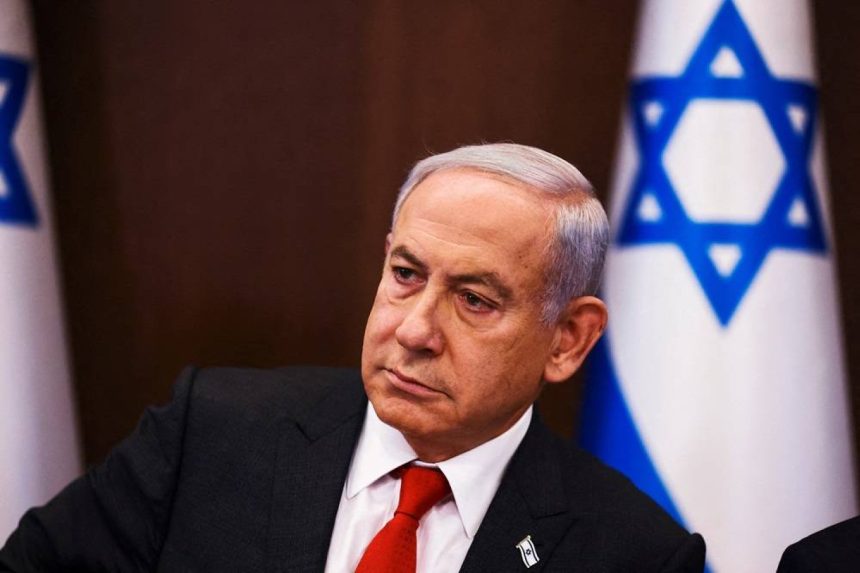Israel’s Covert “Pager Attack” Strikes Hezbollah, Leaving Deadly Impact on Iran-Backed Lebanese Group
In a covert and highly unusual series of attacks, Israeli Prime Minister Benjamin Netanyahu sanctioned the detonation of thousands of pagers, dealing a devastating blow to the Iran-backed Hezbollah group in Lebanon.
Omer Dostri, a spokesperson for Netanyahu’s office, confirmed on Monday that the targeted operation in September, which reportedly killed dozens and injured thousands more, marked one of the most significant Israeli operations against Hezbollah in recent years.
The event, which took place on September 17, involved thousands of pagers simultaneously exploding in Hezbollah strongholds, including southern suburbs of Beirut.
According to eyewitnesses, the devices emitted a final beep just before they detonated, catching many Hezbollah operatives and civilians off-guard. Hospital staff reported a wave of casualties with severe injuries — including eye trauma, missing limbs, and abdominal wounds — indicating the victims’ close proximity to the devices.
The Israeli military, currently embroiled in border clashes with Hezbollah amidst the Gaza conflict, initially refrained from commenting on the incident.

However, Hezbollah, which has relied on pagers and other low-tech devices to avoid Israeli tracking, admitted that the event represented its “biggest security breach” in almost a year of escalating conflict with Israel, according to a Hezbollah official who spoke on condition of anonymity.
READ ALSO:
Pulisic and McKennie Return to U.S. Squad For Concacaf Nations League Quarterfinals Against Jamaica
The attack, which also included a secondary wave targeting weaponized walkie-talkies, resulted in the deaths of at least 39 people and left over 3,400 injured. It wasn’t only an unprecedented security breach but also a breakthrough in Israel’s ongoing strategy to weaken Hezbollah’s foothold in Lebanon.
Many Israeli defense officials and political figures were reportedly opposed to the controversial decision, but Netanyahu took personal responsibility, allegedly claiming during a cabinet meeting that the mission’s success justified its risks.
Pagers, a dated yet effective means of communication, have been Hezbollah’s tool of choice to avoid digital surveillance. The simplicity of pagers, which are primarily one-way communication devices, means they can bypass many modern tracking technologies that target mobile and satellite networks.
Sources familiar with Hezbollah’s communication strategies explained that the group has continued to rely on these devices precisely because of their low-tech nature and relative resistance to interception. Israel’s decision to exploit this communication method in such a deadly way reveals a level of intelligence penetration that surprised many within Hezbollah’s ranks.
Following the pager detonations, Israel escalated its offensive by targeting Hezbollah leader Hassan Nasrallah in a subsequent airstrike and launching ground incursions into southern Lebanon. These moves are part of Israel’s broader aim to curtail Hezbollah’s influence in the region and disrupt its connections with other Iran-backed groups operating across the Middle East.
Israel’s operation signals an increasingly assertive stance in its regional conflicts, particularly as Hezbollah and other Iran-aligned groups intensify their support for Palestinian causes, including the Gaza-based Hamas. These attacks are emblematic of Israel’s tactical shift, now leveraging advanced intelligence to target Hezbollah’s operations and disrupt its infrastructure at a granular level.

The “pager attack” not only inflicted significant casualties on Hezbollah but also sent a message about Israel’s capability to infiltrate and neutralize the group’s internal communication methods. It reflects a new stage in the ongoing Israel-Hezbollah conflict, highlighting Israel’s ability to adapt its strategies to exploit the vulnerabilities in Hezbollah’s communication and operational systems.
READ ALSO: FIFA to Suspend Saudi Arabia’s 2034 World Cup Bid, Amnesty Urges
In the broader geopolitical context, the pager incident may affect Hezbollah’s standing in Lebanon, where its military influence often coexists uneasily with its domestic support base. The attack underscores the risks Hezbollah faces as it continues its engagement against Israel amid rising tensions in Gaza and the broader region.
As border conflicts continue and both sides engage in complex, technology-driven warfare, the world will watch how Hezbollah adapts to counter Israel’s evolving tactics and what this means for the group’s regional ambitions in an increasingly volatile Middle East.

